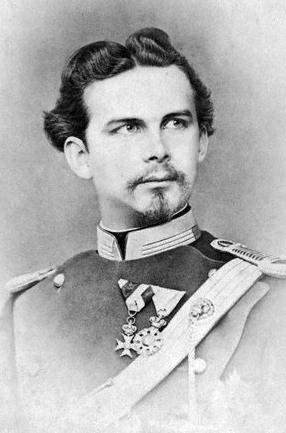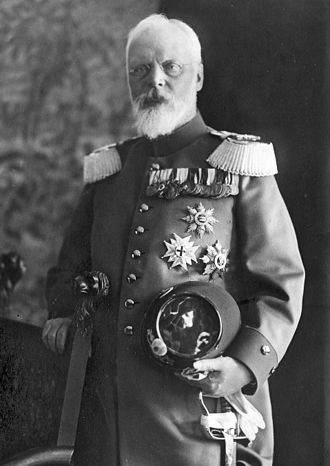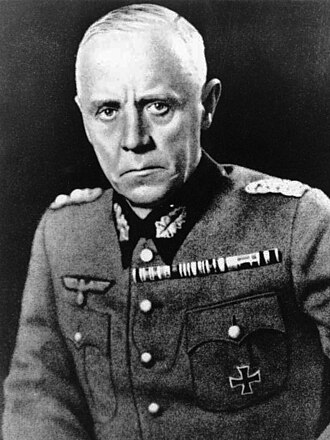Discover Your Roots
SIGN UPDiscover Your Roots
SIGN UPLudwig is a German male name that originates from the Old High German name Hludwig, meaning "Famous War" or "Battle." Etymologically, the name can be traced back to the reconstructed Proto-Germanic name *hlūdawiganaz, which is composed of *hlūdaz ("loud, famous") and *wiganą ("to battle, to fight"), resulting in the name meaning "famous warrior" or "famous in battle." The name is associated with notable historical figures such as Ludwig Van Beethoven, the renowned composer, and several German nobles and monarchs. Additionally, the name has been borne by individuals in various fields including architecture, art, literature, music, philosophy, politics, science, and military. In fiction, it is also connected to characters in popular culture, showcasing the widespread influence of the name Ludwig across different domains.

Ludwig II, also known as the Swan King or the Fairy Tale King, was the King of Bavaria from 1864 until his death in 1886. He was known for his extravagant artistic and architectural projects, including the construction of lavish palaces such as Neuschwanstein Castle, Linderhof Palace, and Herrenchiemsee. Ludwig was a devoted patron of the composer Richard Wagner and spent his private royal revenues on these projects. He was taken into custody and effectively deposed in 1886 and was found dead the following day. His death was ruled to be a suicide, although this decision has since been disputed. Ludwig's architectural and artistic legacy includes many of Bavaria's most important tourist attractions. Born at Nymphenburg Palace, Ludwig was the elder son of Maximilian II of Bavaria and Marie of Prussia. Throughout his reign, Ludwig's eccentric ways made his role as Bavaria's head of state problematic, as he preferred a life of seclusion and creative pursuits. Despite his controversial reign and tragic end, Ludwig II's legacy continues to attract tourists to Bavaria's most important landmarks.

Ludwig III, also known as Ludwig Luitpold Josef Maria Aloys Alfred, was the last King of Bavaria, reigning from 1913 to 1918. Born in Munich on January 7, 1845, he was the eldest son of Luitpold, Prince Regent of Bavaria, and Archduchess Auguste Ferdinande of Austria. Ludwig's early life was marked by a strong military influence, as he served in the Bavarian military and studied at the Ludwig Maximilian University of Munich.In June 1867, Ludwig married Maria Theresia, Archduchess of Austria-Este, and the couple had a happy and devoted marriage, raising thirteen children together. As a ruler, Ludwig championed conservative causes and was influenced by the Catholic encyclical Rerum novarum. His reign was cut short by the German Revolution of 1918–1919, which led to the abolition of the Bavarian throne and the end of the House of Wittelsbach's 738-year reign over Bavaria.After fleeing to Hungary, Liechtenstein, and Switzerland due to fears of assassination, Ludwig returned to Bavaria in 1920 and lived at Wildenwart Castle. He passed away on October 18, 1921, while staying at Nádasdy Mansion in Sárvár. Ludwig's legacy as the last King of Bavaria and his contributions to conservative causes during his reign continue to

Ludwig I, also known as Louis I, was the King of Bavaria from 1825 to 1848. Born in Straßburg, he was the son of Count Palatine Maximilian Joseph of Zweibrücken and Princess Augusta Wilhelmine of Hesse-Darmstadt. As crown prince, Ludwig was involved in the Napoleonic Wars and later strongly opposed the alliance of his father with Napoleon I of France. His reign was marked by his enthusiasm for the arts and a strong interest in the German Middle Ages, reflected in his patronage of neoclassical buildings in Munich and the re-erection of several monasteries in Bavaria. Ludwig also played a role in the Greek War of Independence, providing a loan of 1.5 million florins from his private funds. However, his rule was increasingly repressive following the July Revolution of 1830 in France, leading to protests and demonstrations during the revolutions of 1848. He abdicated in favor of his eldest son, Maximilian, and remained influential until his death in 1868. Ludwig's legacy includes his support for industrialization, the construction of the Ludwig Canal, and Bavaria's entry into the Zollverein economic union. His influence on the arts and his role in European politics have left a lasting impact, and all living legitimate agnatic members of the House of Wittelsbach descend from him.

Ludwig August Theodor Beck (29 June 1880 – 20 July 1944) was a German general who served as Chief of the German General Staff from 1933 to 1938. He was a key figure in the 20 July plot to assassinate Adolf Hitler. Born in Biebrich, Hesse-Nassau, Beck saw action on the Western Front during World War I. In the interwar period, he held various staff and command roles and led the group of army writers that published the German Army Operations Manual. Beck's career flourished as he was promoted to Generalleutnant in 1932 and appointed chief of the Truppenamt in 1934. Despite initially supporting Hitler's rearmament efforts, Beck became disillusioned with the Nazi regime's aggressive foreign policy and rising totalitarianism. He emerged as a leading figure in military resistance to Nazism and played a central role in the failed 20 July plot. Beck's outspoken opposition to Hitler ultimately led to his arrest and execution after a botched suicide attempt. Throughout his career, Beck's legacy has been shaped by his complex relationship with the Nazi regime, his military leadership, and his pivotal role in the resistance movement.

Ludwig Wilhelm Erhard, born on February 4, 1897, was a prominent German politician and economist associated with the Christian Democratic Union (CDU). Notably, he held the position of Chancellor of West Germany from 1963 to 1966 and played a pivotal role in implementing postwar economic reforms, contributing to the country's remarkable economic recovery, also known as the "economic miracle." As the Minister of Economic Affairs under Chancellor Konrad Adenauer from 1949 to 1963, Erhard advocated for the social market economy, a concept that continues to underpin Germany's economic policies today. Despite his significant contributions, Erhard faced challenges during his chancellorship, including a lack of support from Adenauer, budget deficit concerns, and public dissatisfaction with his foreign policy direction. Consequently, his popularity dwindled, leading to his resignation on November 30, 1966. Erhard's early life was marked by personal challenges, including overcoming infantile paralysis and sustaining injuries during military service in World War I. His academic journey culminated in a Ph.D. in economics from Goethe University Frankfurt in 1925. Throughout his career, Erhard's commitment to economic liberalism and extensive research in various institutes and organizations solidified his influence in shaping Germany's economic landscape.
All images displayed on this page are sourced from Wikipedia or Wikimedia Commons.We use these images under their respective Creative Commons or public domain licenses. Wherever applicable, author attributions and license information are provided. If you believe an image is used incorrectly or outside its license terms, please contact us so that we can review and correct the issue.